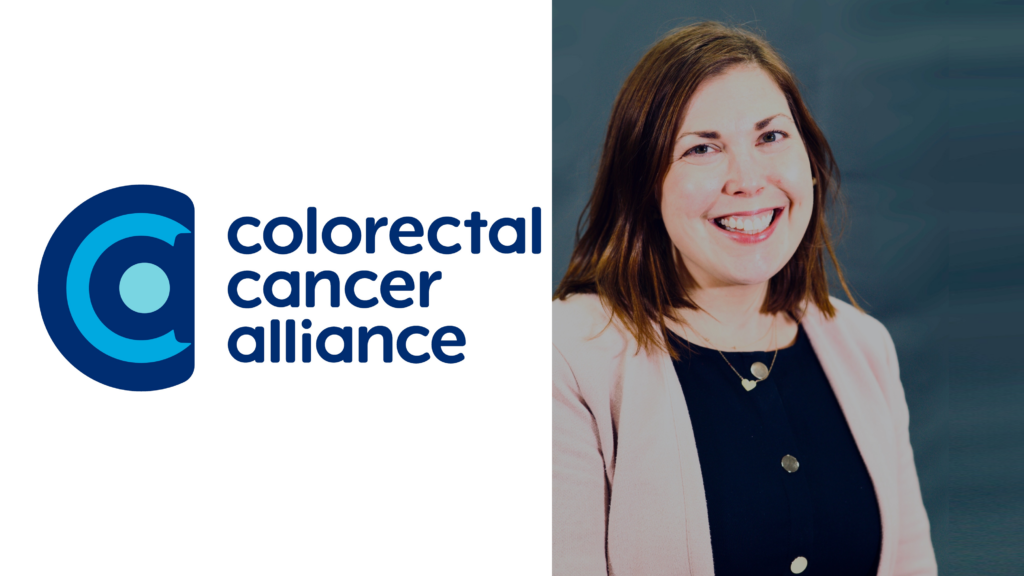Colorectal cancer, the third most frequently diagnosed cancer for both women and men in the US, continues to be a significant area of focus for the medical community. As advancements in research forge ahead, it is imperative to ensure patients are informed about and can access potentially life-saving clinical trials.
Enter the Colorectal Cancer Alliance. Leading the way in combating the disease, they continually put forward groundbreaking initiatives aimed at bolstering patient participation in these trials, especially for those in marginalized communities. At the forefront of these efforts is Andrea Goodman, who was the Senior Vice President of Patient Support and Research Strategy at the Colorectal Cancer Alliance.
In this in-depth conversation, Goodman illuminates the Alliance’s recent endeavors and projects, underscoring the vital importance of patient involvement in clinical trials. She provides an insightful peek into how the Alliance is bridging the gaps in information, removing stigmas and offering unparalleled support to colorectal cancer patients.
Let’s delve into Goodman’s thoughts on the transformative work they are doing.
Tell us about your recent work regarding colorectal cancer clinical trials.
Andrea Goodman: The Colorectal Cancer Alliance noticed a big gap in access to and participation in colorectal cancer clinical trials.
The Alliance sought to lead the charge in fixing this systems-wide challenge in 2022. In partnership with an expert advisory committee, The Alliance launched a “think tank” initiative to dig into best practices and areas of opportunity — all with the goal of increasing trial participation to save lives and accelerate new treatments.
The advisory committee engaged in market research to determine themes and areas for progress, and came to a consensus around three main domains:
1) Messaging and marketing;
2) Community oncology and research readiness; and
3) Patient navigation.
The evidence suggests that innovation across these approaches can change design, stigma, trust, access and ultimately participation in clinical trials. The Alliance hosted a Summit in November 2022 to further define strategies along each of these domains.
How does the Colorectal Cancer Alliance support clinical trials for colorectal cancer?
Andrea Goodman: In addition to thought leadership as evidenced by the Think Tank Initiative, the Alliance plays an active role in navigating patients to clinical trials to support their treatment plan and expand options.
The Alliance’s trial finder tool can be accessed on our website, in our BlueHQ digital platform or via support from our live Helpline navigators at 877-422-2030. The tool uses the national clinicaltrials.gov database to curate a list of open trials that patients might be eligible for based on treatment profile, geographic and demographic answers.
In addition to direct navigation to trial options, the Alliance is committed to increasing awareness of and reducing the stigma around clinical trials. Misinformation abounds and the Alliance is launching a 2023 campaign to increase knowledge around trials as care options during the treatment decision-making process.
Is the Colorectal Cancer Alliance launching any recent initiatives to improve patient enrollment in clinical trials, particularly from marginalized communities?
Andrea Goodman: In January, the Colorectal Cancer Alliance launched a new, first-of-its-kind patient and caregiver digital support platform, BlueHQ, which includes access to the Alliance’s clinical trial finder tool, as well as certified patient and family support navigators.
BlueHQ fills a prevalent gap in patient support between busy physicians and bewildering internet searches. It provides a customized solution to help patients and caregivers learn, connect and take action to improve outcomes. BlueHQ is free and open to anyone with a connection to the disease.
We are targeting the community setting with information about BlueHQ so that we can support every patient upon diagnosis, and make sure they have access to personalized navigation to trials, as well as all of the other support they need.
How can the patient’s voice be incorporated in clinical trials for colorectal cancer? Do you know any examples of when the patient voice was used for colorectal cancer clinical trials?
Andrea Goodman: It is vital that patients are included — not just in input and discussion but as decision-makers — as soon as the trial process begins.
The patient voice is a critical part of defining a clinical research question, making sure the question meets the priorities of the target audience and then defining everything from study design, recruitment plans, consent and more.
An estimated 90 percent of clinical trials centered on cancers fail, and patient input throughout the trial supports success and efficiency throughout the accrual process and beyond. Over the last decade, it has become apparent that industry and academic partners are starting to understand the importance of patient voice and are starting to incorporate patient input, but it is a cultural shift.
We are often approached to support trial needs as a patient advocacy organization but sometimes it’s too late, or there is no budget for our involvement and so on.
PCORI is a great example of a funder who has revolutionized patient-engaged research and pushed investigators to consider new ways for bringing patients and communities into the full process.
In the face of the persistent challenge posed by colorectal cancer, the Colorectal Cancer Alliance stands as a beacon of hope, leading transformative initiatives to increase patient participation in clinical trials. The Alliance is confronting the disease, with leaders like Andrea Goodman championing comprehensive strategies.












Join or login to leave a comment
JOIN LOGIN